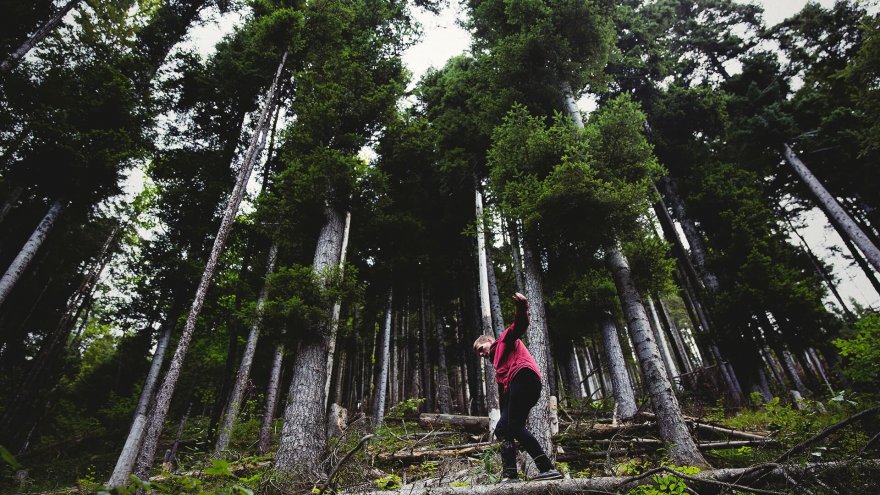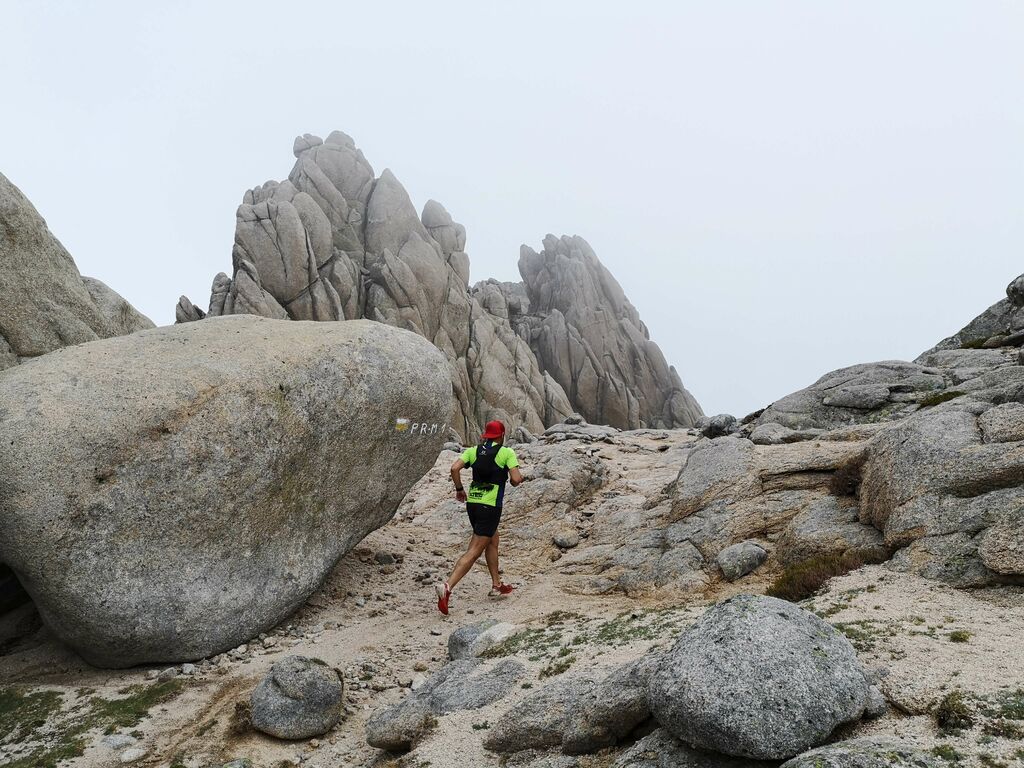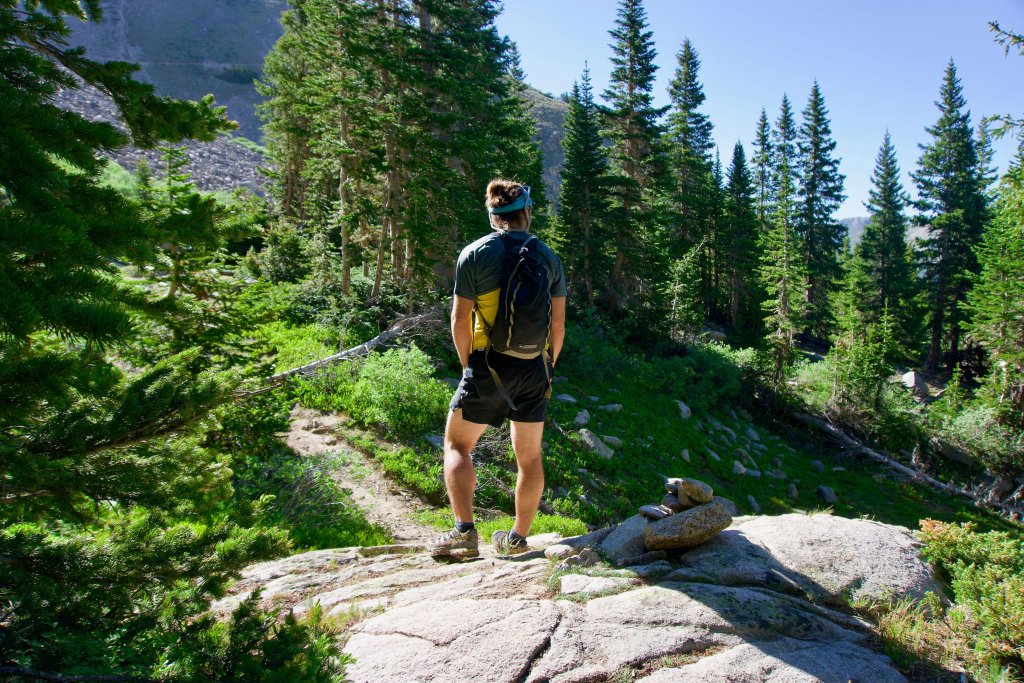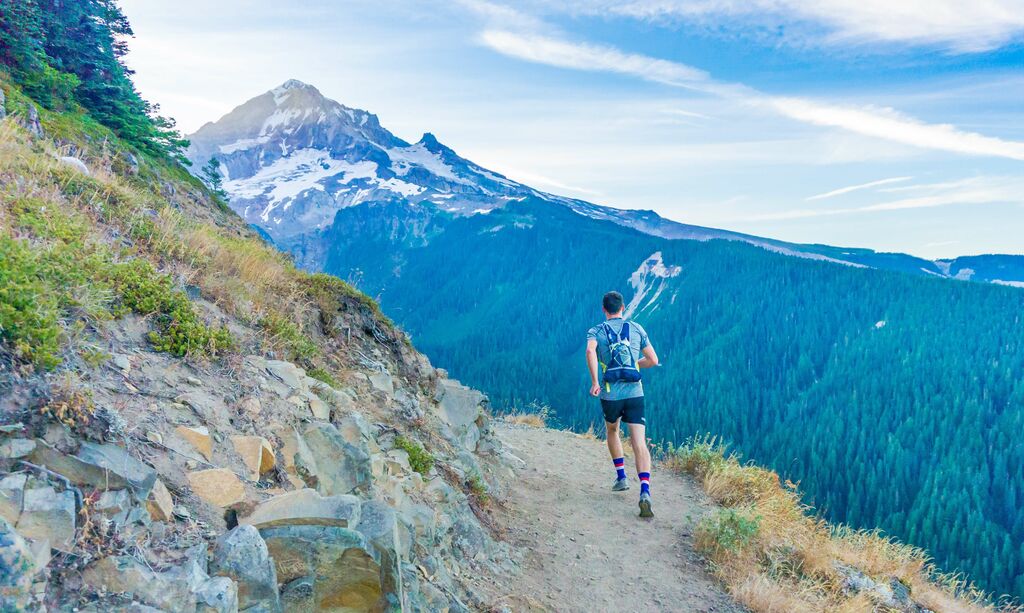Trail vs Road Running: Does The Pace Change Much?

Many runners start on the roads. But magic often happens when finally branching out to explore trail running. Runners get their daily dose of nature, allowing their mind to get lost in the woods. But the different terrain means slowing things down. When it comes to trail running vs road running, how much does pace really change?
It’s easy to sprint on the pavement. Flat road running allows for the ability to increase speed.
Compared to trail running the runner has a whole lot more to worry about. This includes jumping over tree roots, trying not to slip on leaves or branches—not to mention not get lost in general.
All of these things means slowing down the speed.
But even if the runner knows the trail by heart, trail running does result in a pace change when versus road running. If you are still unsure what trail running is, check out our Ask a Runner section.

How Much Does Pace Change For A Trail Runner?
Here’s how trail running vs road running times change. No matter how fast you are on the road, you will be slower on the trails. And this is about 10 to 20 percent slower than average pace.
This might be disappointing for those who worked hard to run faster over time, but 10 percent at minimum isn’t that bad of a slow down.
On those hilly or tight trails, this means trail running pace can be 30- to 90-seconds slower.
Of course, this has to do with the actual terrain of the trail. Rocky trails or those with lots of uphill climbs are tougher—meaning the runner is slower than relatively debris-free or downhill ones.
Trail runners have to pay much more attention to their footing to not trip, roll or sprain an ankle. Not only is like distracting, but it also means form can be thrown off resulting in less running efficiency.

What Causes Slower Trail Running Pace?
- Steep inclines
- Difficult footing because of rocks, tree roots, etc
- Tight pathways only large enough for one runner
Still, there are plenty of fast trail runners. Just keep in mind that even elite marathoners have slower finish times compared to marathons on the road. This doesn’t mean that they aren’t as fast, just that more variables affect pace.
Getting Faster On The Trails
Many runners struggle with the fact that they are slower on trails at first. It might be hard, but embrace the slow down. Instead focus on effort, not pace.
But there are ways to increase the pace when trail running.
Those that are new to trail running should start on more groomed trails to get used to the difference vs road running. Then work up to more challenging trails.
Also, don’t quit road running altogether.
The best way to get faster on trails is to continue to run on roads at least once a week. Make these runs dedicated for speed work.
Do intervals or make it a fartlek run to help increase speed in general when road running.
Making trail running vs road running the more preferred course to get the muscles used to the terrain and to build the endurance it requires to deal with elevation and altitude.
It’s also a smart idea to strength train. While this is important for all runners, it especially is so for trail runners because it requires more stamina, agility, and balance vs road running. Strength training will further prevent injury.
What About Calories?
When comparing trail running vs road running, trail runners burn more calories.
This is because the body is required to move a whole lot more than being in the standard running form on the road. This means engaging the muscles more to leap over tree roots or to power up those steep steps carved out for runners to make it uphill.

As a result, the body is working harder. This means more energy is burnt, thus more calories.
While this all depends on pace and fitness level, and the runner’s age, weight, and gender, trail running burns up to 10 percent more calories vs road running.
According to the journal Medicine and Science in Sports and Exercise, a slow pace runner who weighs 155 pounds burns about 774 calories per hour and 950 calories per hour at a more moderate pace.
Pros On Cons Of Trail Running Compared To Road Running
Many runners find that once they start trail running they don’t want to go back to the roads.
Trails provide a softer surface to run on, making it easier on the ligaments and joints. This leads to less injury.
Of course, tripping or slipping when on the trails could cause a fall and potential injury so be careful of foot landing. Runners might want to invest in a pair of trail running shoes specifically when not on the road for better traction.
Still, that means building more strength and stamina.
Some runners are concerned that it’s easier to get lost trail running vs road running. It’s much easier to stop for directions or turn right around on a paved road.
There might not be cell service or the runner might find themselves off the trail and lost in the wilderness. To avoid this, run with a friend who is an avid trail runner who knows a specific trail. Another option is to stick to those more groomed ones to reduce the risk of taking a wrong turn.
However, the biggest con when comparing trail running vs road running is the slower pace.
Not only is it harder on the muscles for a more intense workout, but trail running is also harder on the mind. It takes much more focus and determination to it across the uneven, bumpy and often steep terrain.
But many find not worrying about pace and being present in the moment in nature is a worthy trade.
Road running is still great, but trail running is a special thing. Runners just have to get used to a slight change of pace.
Also, check out what our experts have to say about using road running shoes for trail running.
Sources
- , What is a Good Trail Running Pace? , Trail Running Blog
- , Trail Running vs Road Running Times – Fast Moves, Running Blog
- , Calories Burned Trail Running, Informative Website
- , The Pros & Cons of Road Running vs. Trail Running, Blog
Latest Articles
 Is Running on a Treadmill Easier Than Running Outside?Runners have their own preferences, whether it is treadmill running, running outside on the road, or exploring trails. So...
Is Running on a Treadmill Easier Than Running Outside?Runners have their own preferences, whether it is treadmill running, running outside on the road, or exploring trails. So... Is It OK to Use Trail Running Shoes on the Road?While trail running shoes can be used on roads, especially in situations where a runner encounters mixed terrains or pref...
Is It OK to Use Trail Running Shoes on the Road?While trail running shoes can be used on roads, especially in situations where a runner encounters mixed terrains or pref... How to Fix Sore Quads After Running?Rest, ice, gentle stretching, and over-the-counter pain relievers can help soothe sore quads after running. Also, ensure ...
How to Fix Sore Quads After Running?Rest, ice, gentle stretching, and over-the-counter pain relievers can help soothe sore quads after running. Also, ensure ... 10 Fruits With The Most Electrolytes to Replace Sports DrinksThese fruits are high in electrolytes such as potassium, magnesium, and calcium, essential for hydration, muscle function...
10 Fruits With The Most Electrolytes to Replace Sports DrinksThese fruits are high in electrolytes such as potassium, magnesium, and calcium, essential for hydration, muscle function...

